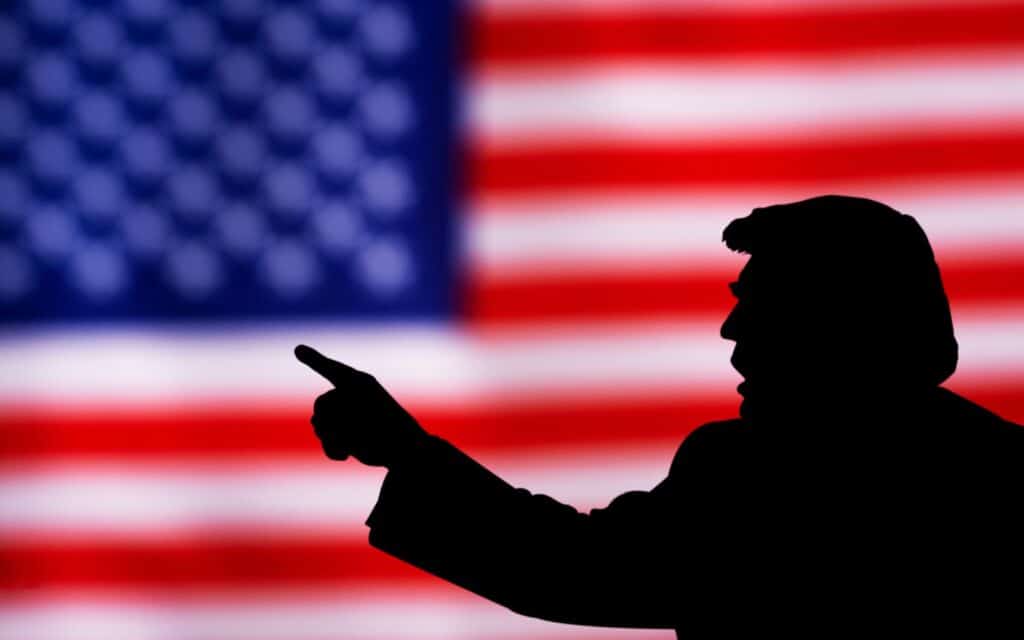What Is A King? And Why The U.S. Doesn’t Have One…Yet?
A king is traditionally defined as a male monarch who serves as the supreme ruler over a nation or territory, typically for life and often by hereditary right. This role encompasses the highest authority within a kingdom, surpassing all other secular leaders except an emperor.
The Word’s Origins

The term “king” originates from the Germanic word kuningaz, meaning “son of the people.” Kingship can manifest in various forms, ranging from absolute monarchies—where the king holds unrestricted power—to constitutional monarchies, where the king’s powers are limited by law or by a governing body.
In many cultures, the concept of kingship is deeply intertwined with historical traditions, religious beliefs, and societal structures. For instance, in ancient Greece, the term basileus referred to a chieftain or leader, while in Hebrew, melech denotes a king. These roles often carried not only political authority but also religious and cultural significance, symbolizing unity and continuity within a nation.
We Do Not Have Kings In The U.S.

The United States, however, was founded on principles that explicitly reject the notion of monarchy. The American Revolution was, in essence, a rebellion against the monarchical system of Great Britain. The Founding Fathers sought to establish a republic grounded in democratic ideals, where governance derived its authority from the consent of the governed rather than hereditary succession.
We Have A Constitution

This vision was enshrined in foundational documents like the Declaration of Independence and the Constitution, which emphasize liberty, equality, and a system of checks and balances designed to prevent any single individual or group from amassing unchecked power.
We Have Checks & Balances

The deliberate design of the U.S. government includes separate branches—legislative, executive, and judicial—to ensure a balance of power. This structure reflects a conscious effort to avoid the concentration of authority characteristic of monarchies, promoting a system where leaders are elected and accountable to the people.
Trump is Deluded

In February 2025, President Donald Trump referred to himself as “the king” following his administration’s decision to revoke New York City’s congestion pricing system. On his social media platform, Truth Social, he proclaimed, “CONGESTION PRICING IS DEAD. Manhattan and all of New York, is SAVED. LONG LIVE THE KING.”
This declaration was accompanied by the official White House Instagram account sharing a fabricated Time magazine cover depicting Trump wearing a crown, with the caption “Long live the king.”
What Do You Think?

This portrayal drew immediate and widespread criticism. New York Governor Kathy Hochul responded firmly, stating, “We are a nation of laws, not ruled by a king.” She emphasized that legal proceedings were underway to preserve the congestion pricing program, highlighting the importance of adhering to democratic processes and the rule of law. Other political figures echoed this sentiment.
Council member Justin Brannan remarked, “We don’t have a king. We have a president.” Similarly, Representative Don Beyer of Virginia stated, “America fought a war to rid itself of kings. The president is not a king.” These reactions underscore a collective reaffirmation of the nation’s foundational commitment to democracy and a rejection of monarchical imagery and implications.
Backlash

The backlash extended beyond political circles. Media outlets and commentators criticized the president’s self-designation as “king,” interpreting it as an affront to the country’s democratic values. The New Yorker published an article titled “We’d Never Had a King Until This Week,“ reflecting on the erosion of democratic principles and drawing parallels to historical events that led to the rejection of monarchy in America.
The article emphasized the nation’s founding ideals rooted in self-rule and opposition to monarchical systems, cautioning against the dangers of concentrated power and the undermining of democratic institutions. This discourse highlights the sensitivity and significance of language and symbolism in political leadership, especially in a nation with a deep-seated aversion to monarchical rule.
Long Held Warnings

The Founding Fathers were acutely aware of the perils associated with concentrated power and took deliberate steps to prevent the emergence of a monarchical system in the United States. James Madison, in the Federalist Papers, warned against the accumulation of power in any single branch of government, advocating for a system of checks and balances.
John Adams cautioned that unchecked power could lead to tyranny, emphasizing the need for a government rooted in laws rather than the whims of individuals. These principles were foundational in shaping a republic designed to safeguard against the rise of autocratic leadership. The recent events surrounding President Trump’s “king” declaration have reignited discussions about these foundational principles, serving as a reminder of the importance of vigilance in preserving democratic norms and institutions.
The Takeaway

The concept of a king stands in stark contrast to the democratic ideals upon which the United States was founded. The nation’s history is marked by a deliberate departure from monarchical systems, embracing a republic where power is derived from the people and their elected representatives. President Trump’s self-designation as “the king” has elicited significant criticism, reflecting both a deep-seated commitment to democratic principles and an urgent concern about the preservation of those ideals.
However, this episode is far from over. The true challenge to the Republic lies not just in rejecting the language of monarchy but in how steadfastly we uphold the structures, norms, and values that define American democracy. The durability of the nation’s founding principles depends on continuous vigilance, active civic engagement, and an unwavering commitment to the rule of law—because democracy is not just a legacy to inherit but a responsibility to sustain.
Major Recent Land Returns To Native Tribes Could See Significant Setback From Trump and Project 2025

The Land Back movement in the United States has gained significant momentum in recent years, with major tracts of land being returned to Native American tribes through state agreements, federal initiatives, and grassroots advocacy. From thousands of acres in California to historic co-management deals for national parks, these efforts mark a shift toward recognizing Indigenous sovereignty and addressing historical injustices.
READ: Major Recent Land Returns To Native Tribes Could See Significant Setback From Trump and Project 2025
Join Us

Join us on this empowering journey as we explore, celebrate, and elevate “her story.” The Queen Zone is not just a platform; it’s a community where women from all walks of life can come together, share their experiences, and inspire one another. Welcome to a space where the female experience takes center stage. Sign up for our newsletter so you don’t miss a thing, Queen!







